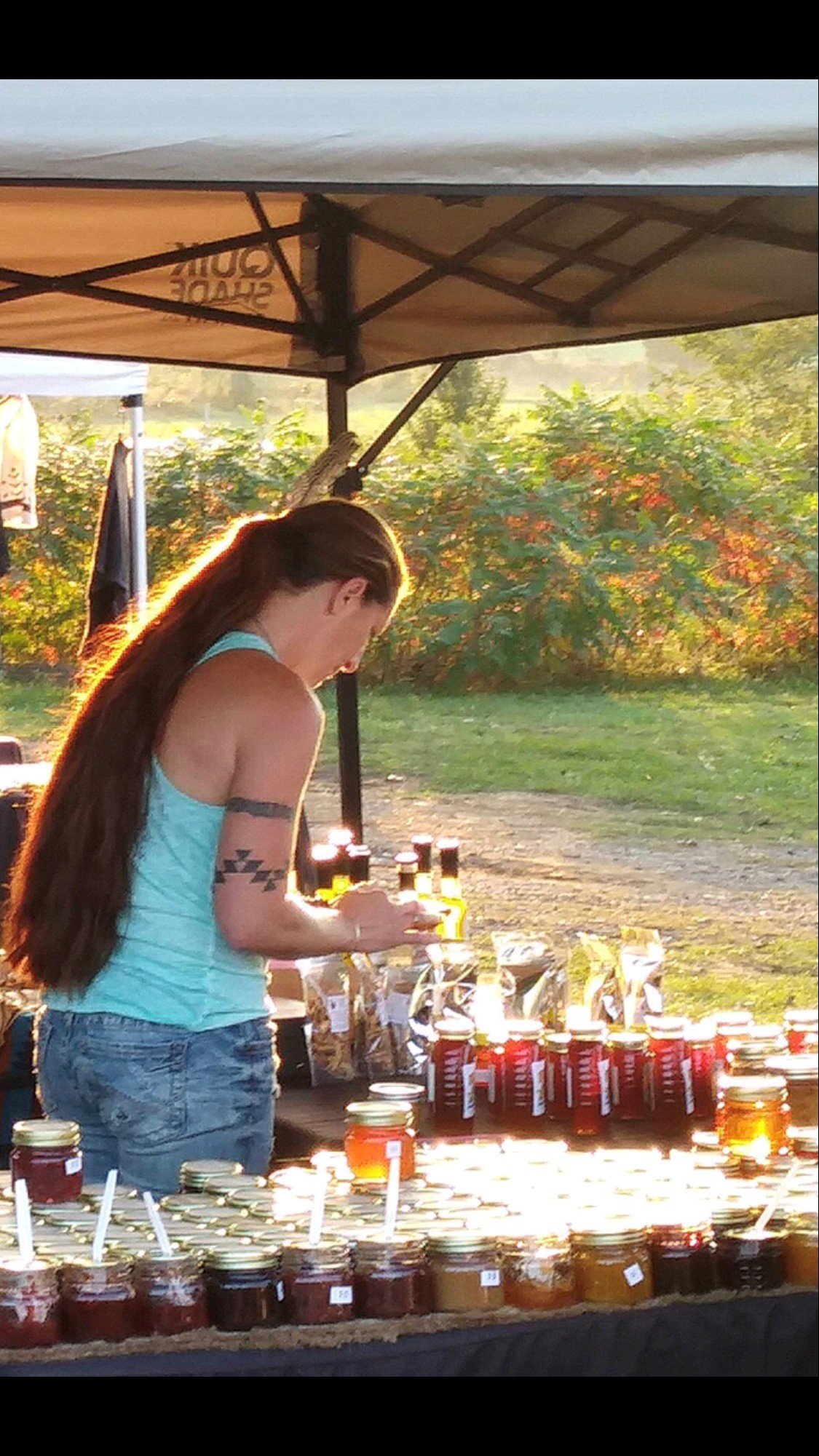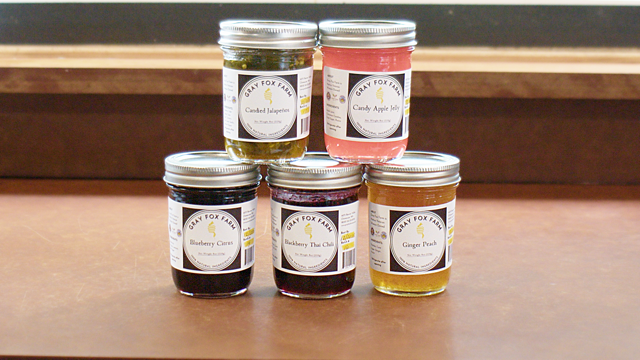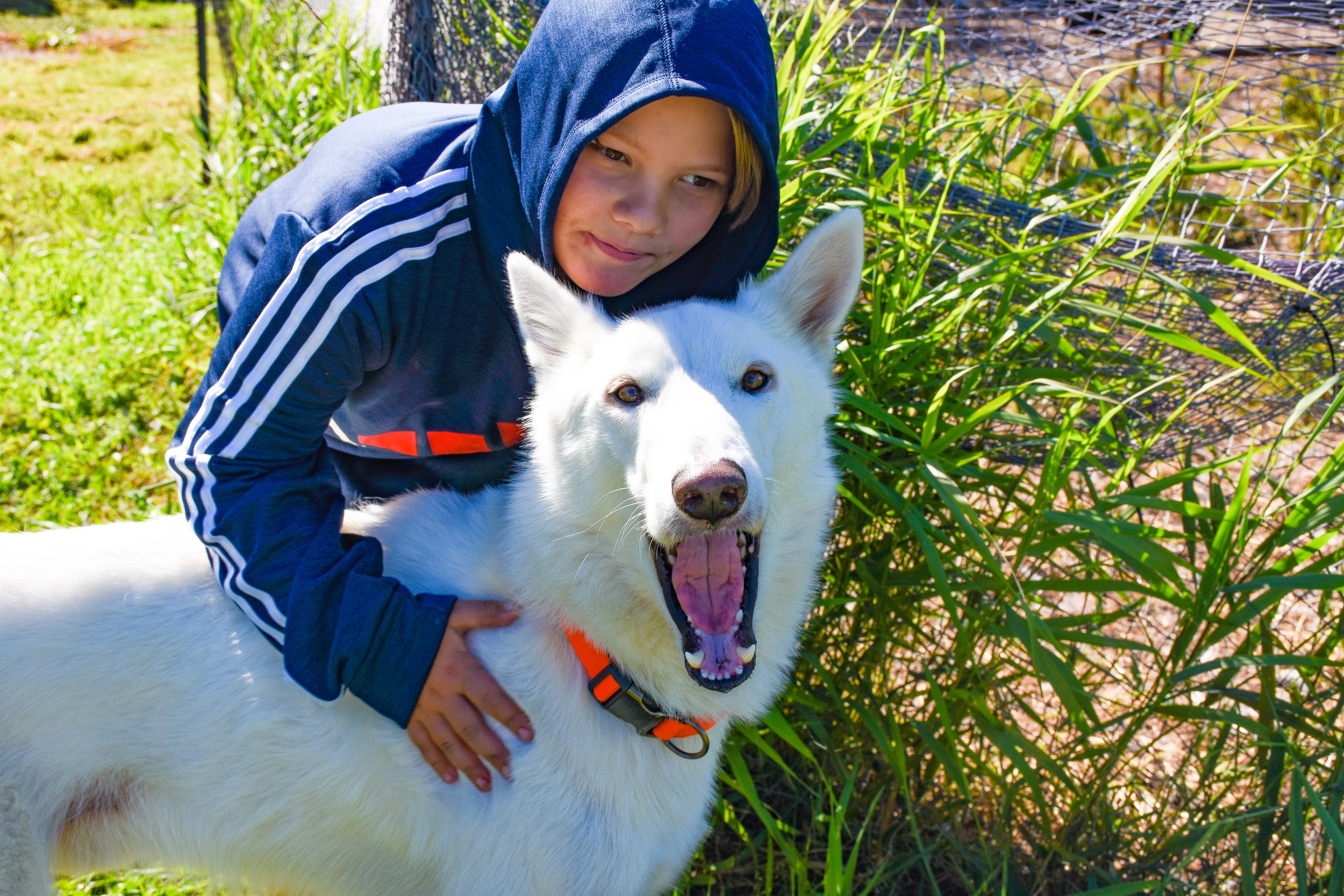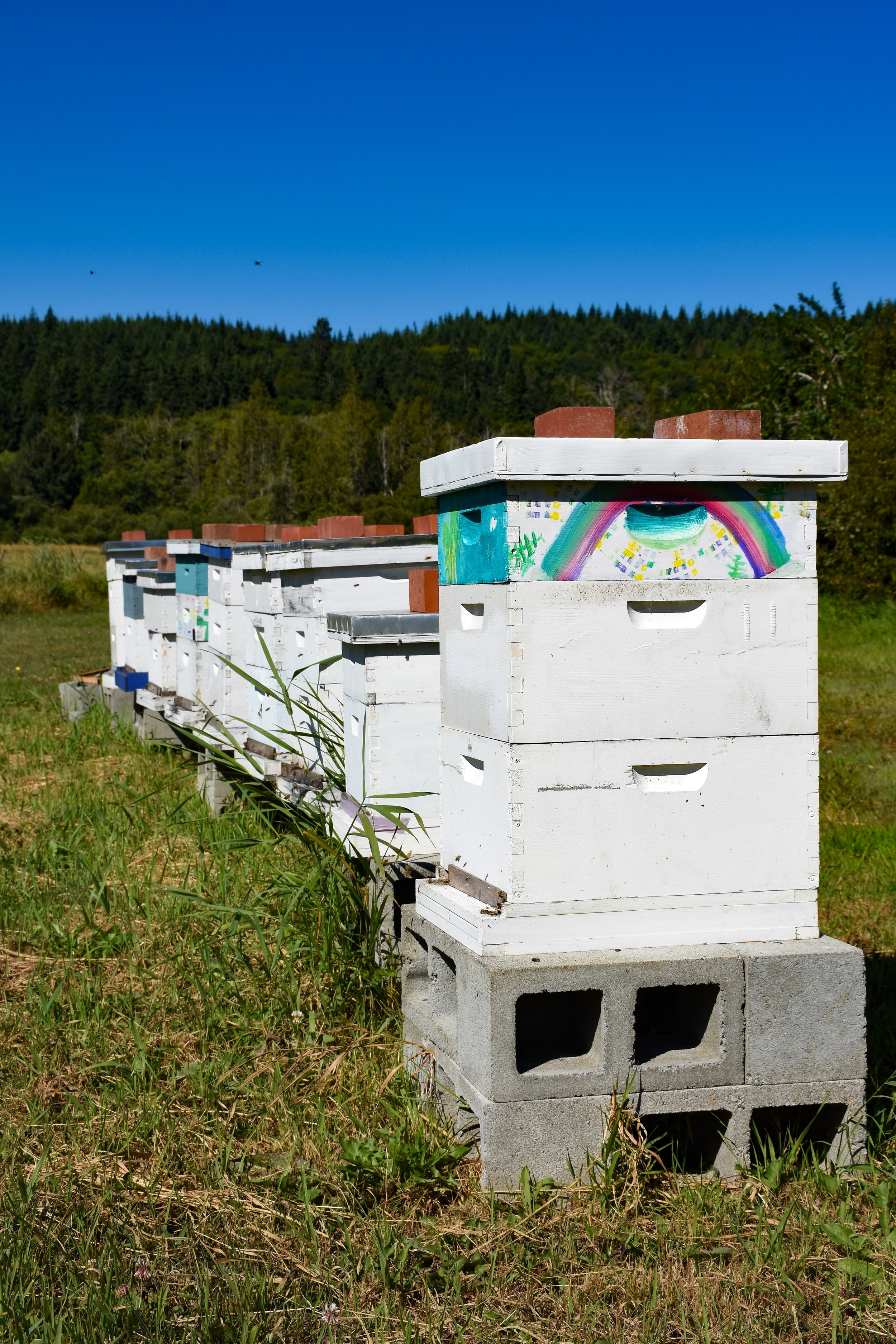Meet Laurae Hughes of Gray Fox Farm
By Kate Nichols
In 2006, Laurae Hughes bought ten acres in Chimacum Valley that was so overgrown with reed canary grass she found a tractor and a creek hidden in the grass. She has turned this land into Gray Fox Farm. Her farm is Certified Naturally Grown, a certification farmers use to rate their peers on their ecological farming methods. She explained it is an affordable way for farmers to hold each other accountable to the “highest ideals of the organic movement.” She is also a member of the Northwest Native Chapter, an organization for Native entrepreneurs who are grounded in their cultures.
“Farming on my own, being able to rely on myself, creates a sense of pride,” Laurae explains. She raises chickens and sells the eggs wholesale, and she also raises ducks as a part of her pest management system. In addition, she uses companion planting. Her honey bees collect nectar from the clover she plants for ground cover.
Laurae has over 2000 blueberry bushes. She started using netting around her blueberries, but after she found 35 dead birds in the netting, she decided to let the reed canary grass surround the berry bushes. Now the birds are safe and they don’t spot too many berries to eat among the tall grass.
She picks blackberries, juniper berries, and fruit from her plum, apple, and pears trees, some of which were growing on the land when she bought it. She grows strawberries, radishes, and other fruits and vegetables as well. She plans to extend her growing season, and she recently purchased a 30’ x 100’ double-walled, insulated greenhouse for growing winter crops for the local Food Banks.
When she realized there were already enough local farmers growing produce, Laurae turned to creating value-added products—jams, jellies, soups, and sauces. Her jams include Blackberry Thai Chili, Ginger Peach, RhuBerry, Honey Apple butter, and Spiced Apple Pear. Laurae enjoys teaching people how to grow and process their own food. She wants Gray Fox Farm to become a hub for learning skills like bee keeping, soil health, companion planting, hide tanning, introductory basket making, and food preservation. She believes these self-sustaining practices bring us joy and purpose as human beings.
Check out her wholesome products in the jam section of the Food Co-op and her Facebook page for classes.





